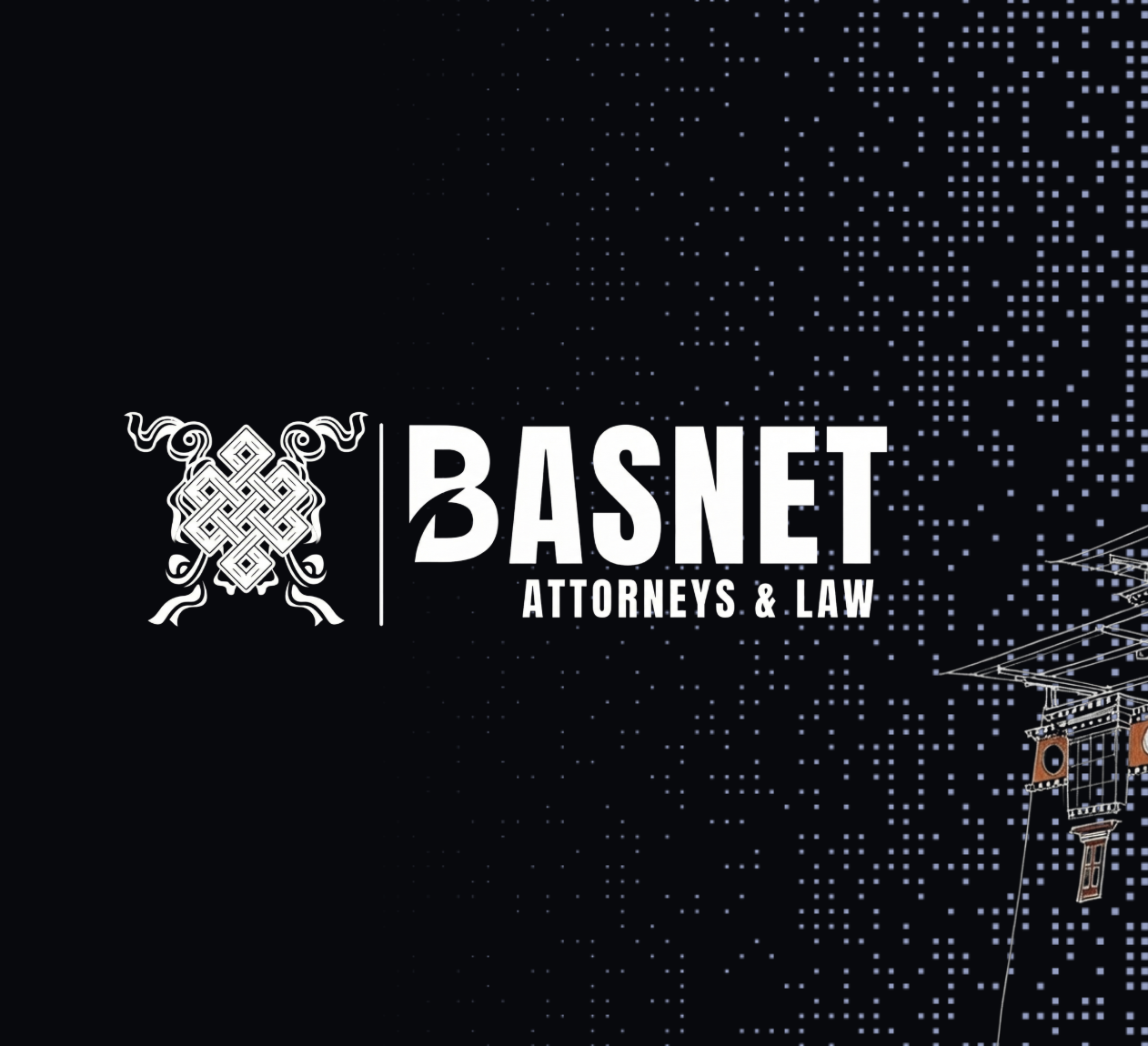Best Corporate & Commercial Lawyers in Bhutan
Share your needs with us, get contacted by law firms.
Free. Takes 2 min.
Or refine your search by selecting a city:
List of the best lawyers in Bhutan

Basnet Attorneys and Law - A Premier law Firm in Bhutan
15 minutes Free ConsultationAbout Corporate & Commercial Law in Bhutan
Corporate and commercial law in Bhutan is a specialized branch of law that governs the formation, operation, and regulation of companies and business entities. It also involves the rules and practices affecting commercial transactions, trade, investments, and other business activities. Corporate law deals with the rights and obligations of businesses, directors, shareholders, creditors, and other stakeholders, while commercial law covers the contracts, sales, agency, and financing of commercial activities. Bhutan's corporate and commercial laws are intended to promote a secure business environment while aligning with the country's unique cultural and constitutional values.
Why You May Need a Lawyer
Individuals and businesses may require legal help in corporate and commercial matters for a variety of reasons. Setting up a company, undertaking a joint venture, or engaging in investment activities often requires navigating intricate regulatory frameworks. Legal representation becomes vital when drafting or reviewing contracts, negotiating deals, and resolving disputes with clients, partners, or government agencies. Lawyers specializing in this field can also assist with regulatory compliance, mergers and acquisitions, restructuring, intellectual property protection, employment matters, and dissolving businesses. Whether you are launching a startup or managing an established firm, legal expertise ensures that your business interests are protected and your operations are in line with Bhutanese law.
Local Laws Overview
Bhutan's corporate landscape is regulated by several key pieces of legislation and administrative bodies. The main laws include the Companies Act of Bhutan 2016, which sets out the framework for registering, managing, and dissolving companies. The Foreign Direct Investment (FDI) Policy guides foreign investment and joint ventures. Bankruptcy and insolvency are governed by provisions under the Companies Act, alongside judicial interpretation. Commercial transactions, such as the sale of goods or partnership arrangements, are primarily guided by contract law provisions. Regulatory oversight is conducted by agencies such as the Ministry of Economic Affairs, the Registrar of Companies, and the Department of Trade. Importantly, both domestic and foreign investors must comply with these regulatory requirements to carry out business activities lawfully in Bhutan.
Frequently Asked Questions
What types of business entities can be formed in Bhutan?
Businesses can register as private limited companies, public limited companies, sole proprietorships, partnerships, and cooperative societies according to the Companies Act and related regulations.
How can a foreign investor establish a business presence in Bhutan?
Foreign investors can participate through Foreign Direct Investment, subject to FDI Policy guidelines. Approval from the FDI division and compliance with sector-specific regulations are required.
What are the main compliance obligations for companies?
Companies must maintain statutory records, hold annual general meetings, file annual returns, pay necessary taxes, and comply with sector regulations such as licensing where applicable.
Are there restrictions on foreign ownership in Bhutan?
Yes, certain sectors have capped foreign ownership and some areas are reserved exclusively for Bhutanese nationals. The FDI Policy specifies these limits and reserved sectors.
How are commercial disputes resolved?
Disputes can be settled through negotiation, mediation, arbitration, or through the formal court system. The Contract Act and Arbitration Act provide guidance on dispute resolution mechanisms.
What are the tax obligations for businesses?
Businesses must comply with the Income Tax Act of Bhutan. Taxes include corporate income tax, business income tax, and sales tax or goods and services tax according to the nature and scale of activities.
Can companies repatriate profits abroad?
Repatriation of profits by foreign investors is allowed, but it is subject to compliance with tax regulations, FDI guidelines, and centralized banking requirements.
What are the requirements for dissolving a company?
Dissolution involves passing a resolution, settling debts, notifying the Registrar of Companies, and filing necessary documentation. In case of insolvency, court proceedings may be needed.
How is intellectual property protected in Bhutan?
Intellectual property such as trademarks, patents, and copyrights are protected under specific Bhutanese laws and by registration with the relevant authorities, mainly the Intellectual Property Division under the Ministry of Economic Affairs.
Do employment laws apply to private companies?
Yes, private companies must comply with Bhutan’s Labour and Employment Act, which covers contracts, wages, disputes, and working conditions for employees.
Additional Resources
For further information or official guidance, consider reaching out to these governmental bodies and organizations:
- Registrar of Companies, Department of Industry, Ministry of Economic Affairs
- Department of Trade, Ministry of Economic Affairs
- Foreign Direct Investment Division, Ministry of Economic Affairs
- Intellectual Property Division, Ministry of Economic Affairs
- Bhutan Chamber of Commerce and Industry
These entities provide updated information, forms, and procedural guidelines for matters related to company registration, compliance, investment, and various commercial activities in Bhutan.
Next Steps
If you believe you need legal assistance in the area of corporate and commercial law in Bhutan, start by gathering all relevant information about your business intentions or ongoing activities. Seek a consultation with a lawyer experienced in Bhutanese commercial matters. The lawyer will help assess your needs, explain your rights and obligations, and guide you on the best course of action. Ensure that any legal documents you use, such as contracts or agreements, are reviewed or drafted by legal professionals to avoid future disputes. Staying informed about regulatory updates and maintaining a relationship with a credible legal advisor will protect your interests and contribute to your business success in Bhutan.
Lawzana helps you find the best lawyers and law firms in Bhutan through a curated and pre-screened list of qualified legal professionals. Our platform offers rankings and detailed profiles of attorneys and law firms, allowing you to compare based on practice areas, including Corporate & Commercial, experience, and client feedback.
Each profile includes a description of the firm's areas of practice, client reviews, team members and partners, year of establishment, spoken languages, office locations, contact information, social media presence, and any published articles or resources. Most firms on our platform speak English and are experienced in both local and international legal matters.
Get a quote from top-rated law firms in Bhutan — quickly, securely, and without unnecessary hassle.
Disclaimer:
The information provided on this page is for general informational purposes only and does not constitute legal advice. While we strive to ensure the accuracy and relevance of the content, legal information may change over time, and interpretations of the law can vary. You should always consult with a qualified legal professional for advice specific to your situation.
We disclaim all liability for actions taken or not taken based on the content of this page. If you believe any information is incorrect or outdated, please contact us, and we will review and update it where appropriate.
Browse corporate & commercial law firms by service in Bhutan
Bhutan Attorneys in related practice areas.
Browse corporate & commercial law firms by city in Bhutan
Refine your search by selecting a city.










